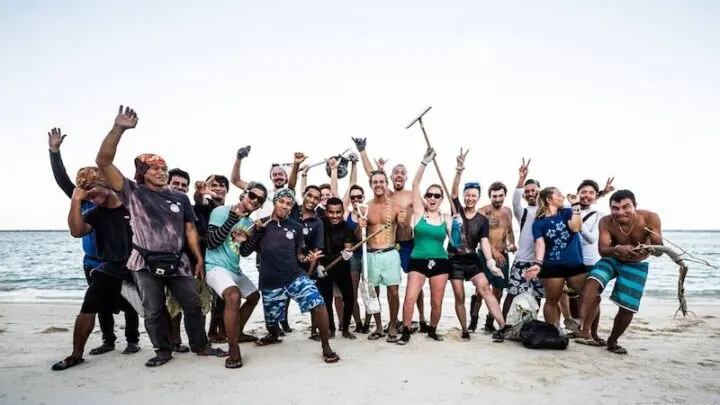It’s a topic that comes up a lot in Girls that Scuba: marine conservation project, how much they cost, are they worth it etc. As divers we are all fascinated by the ocean and want to see as much of it as we possibly can. However, for some of us diving is not just about exploration, it’s a skill we wish to use to help protect the oceans. Some of us do this as a career or just because we love the oceans and want to conserve them.
When we recently asked the Girls That Scuba community where they had their best diving experience as part of a marine conservation project, there were three organisations that stood out. We cover those 3 now here to help you make an informed choice when choosing a marine conservation project.
GVI (Global Vision International)
GVI (Global Vision International) is a UK based organisation that offers not just conservation projects, but also education and community work in Africa, Latin America, Asia, Europe and Australasia. For their marine conservation programmes, you can travel to Seychelles, Fiji, Mexico, Thailand, Greece, Costa Rica or South Africa. These projects involve collecting data which is provided to partner organisations and local governments to help inform management decisions and protect ecosystems.
Included in the cost
The price tends to be cheaper the longer you go and includes in most cases food accommodation and diving. The cost also includes in most cases 24-hour support, airport transfers and training and qualifications necessary to the project, however, there is a comprehensive list of what is and isn’t included for each individual project on their website.
Diving and extra qualifications
As long as you have an Open Water qualification you can go on one of the marine conservation projects. A couple of GTS undertook their Divemaster internship with GVI in the Seychelles and Fiji. Before completing your DM you can be trained up to Advanced Open Water if you don’t yet have it. You can also get your Emergency First Response (1st and 2nd response) certificates.
You don’t need a background in marine biology as you will be taught all you need to know before you are sent out on surveys. However, it may be an advantage when it comes to carrying out data collection and species identification. Other qualifications and skills you can gain include the Coral Reef Research Diver certification and learning to identify species of native fish, corals and invertebrates.
What you will be doing
There is a range of conservation activities which include working with turtles, fish and other invertebrate surveys, lemon shark tagging and counting coral to monitor the recovery of a reef. The data that one GTS member helped to collect, was used in a scientific paper which looked at how biodiversity changed along reefs following an El Niño event.
The best bits
The GTS who went on these projects absolutely loved their time with GVI, stating how helpful and supportive all of the staff were and even supported one of them with their Master’s research. For those that completed Divemaster internships it was a great introduction to the diving industry. Overall these projects were described as a fantastic opportunity to make contacts and gain experiences to further your education, conservation and dive career.
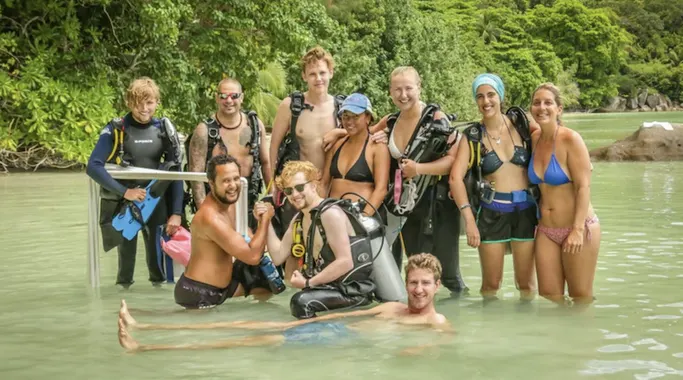
TRACC (Tropical Reef and Conservation Centre)
Based on Pom Pom Island in Sabah, Borneo, TRACC is working to restore local reefs that have been damaged by bomb fishing. Their focus points for conservation are coral reef restoration, turtles and sharks, however, they also have projects that involve growing coral, rebuilding reefs and measuring biodiversity.
Included in the cost
Prices are not advertised on the TRACC website, they encourage you to get in touch as prices will vary depending on your dive qualification and whether you’re wanting to teach diving, volunteer or both!
The price includes the following:
Orientation and project inductions on arrival
Training on techniques needed to work here
3 meals a day
Accommodation
24-hour support
3G phone signal
Boat travel from Semporna to the island
Your dive equipment: mask, snorkel, fins, boots, BCD, regulator. Wetsuits, computers and lights can be hired.
Diving and extra qualifications
You don’t actually need a diving qualification to help as TRACC welcome snorkelers to assist with surveys, turtle conservation and building bottle reefs. They do also offer PADI courses all the way up to Divemaster, so you can extend your diving experience whilst contributing to conservation. You will also be taught scientific diving skills, trained to improve your underwater navigation, buoyancy control techniques and also taught to lift and move objects underwater using lift bags.
There is also the opportunity to take a Marine Science A Level which includes modules on scientific study of the sea and its ecosystems and human interactions with the ocean and its impacts. However you must stay for 15 weeks to complete it, and it runs between January and May each year.
What you will be doing
You will be carrying out 2-3 dives per day, with the opportunity to dive neighbouring islands on your days off. During those dives you will be helping to repair and restore the damaged reef habitat in the area. This includes the planting of soft and hard coral and sponges, building bottle reefs and maintaining the reefs through algae removal, slope stabilisation and general upkeep of new reef structures. You will also get the chance to conduct turtle and fish surveys and perhaps take part in culling invasive crown of thorns starfish that cause devastating damage to vulnerable coral reefs.
You will also learn scientific survey techniques which includes the important task of recording data on fish bomb blasts which can be heard underwater. This information is collated in Reef Check Malaysia’s fish bombing database which allows them to provide reports on the scale of this issue to authorities.
The best bits
Many members of Girls That Scuba loved their time at TRACC so much that they have returned. And it’s not just the beautiful sunrises and sunsets, the clear water and shooting stars that have drawn them back. One of the things that kept being mentioned was the atmosphere of the TRACC camp being such great fun and an inspiring place to be. It also allowed the opportunity to meet people from all over the world. Some girls got to help teach the new volunteers how to dive and some taught science and English to a tribe on the neighbouring island.
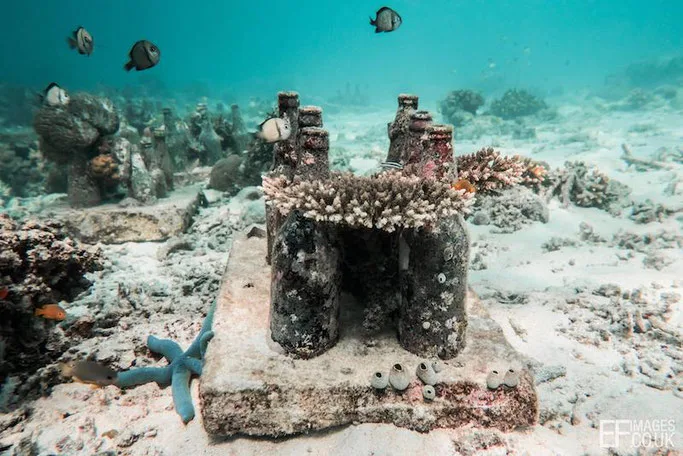
Blue Ventures
Blue Ventures develops community-led conservation projects in areas where local people rely on the ocean for their livelihoods. They provide volunteer programmes in Madagascar, Belize and Timor-Leste that contribute directly to conservation, development and education. Not only will you get to explore and conserve coral reefs, but also the incredibly important mangroves and seagrass habitats in these areas.
Included in the cost
Prices vary depending on how long you are staying for and your diving qualification. If you’re already qualified and go for longer it is cheaper per week.
The price includes the following:
Transfers between Toliara and Andavadoaka
Accommodation
Three meals per day
Science training with our team of field scientists and researchers
Scuba diving training and certification to PADI Advanced Open Water level
Diving equipment including BCDs, regulators, weights and cylinders
Logistical support and pastoral care from field staff
Support from expedition medics and dive managers
Diving and extra qualifications
Blue Ventures offer diving certification up to Divemaster, so no matter what your experience they will train you up to be able to take part in dive surveys. However, as long as you have your PADI Advanced Open Water certification (or equivalent) you can join any of the Marine Conservation projects. The amount of diving varies depending on the project, for example on the Belize trip you will be diving 6 days a week and on the Madagascar trip 5 days a week, with Saturday reserved for community conservation work.
You don’t need a Marine Biology background as in the first few weeks you will be trained up to be able to identify species you may come across and the techniques for conducting underwater surveys. This training involves informal lectures, group discussions and identification practice as well as dive and snorkel excursions.
What you will be doing
You will be conducting research dives using the techniques learned during your training and this data will contribute towards monitoring the health of the reefs and also scientific publications. Depending on which project you choose, you may also get the chance to gain experience with aquaculture, lionfish monitoring and culling, community engagement, manatee surveys and rehabilitation and bird surveys.
You can find out more about the different tasks and things you might experience in Madagascar, Belize and Timor-Leste on their website.
Best bits
These projects have been described by Girls that Scuba members as an experience of a lifetime that they simply didn’t want to end. They have inspired GTS members to become professional dive instructors and to get jobs working in shark conservation.
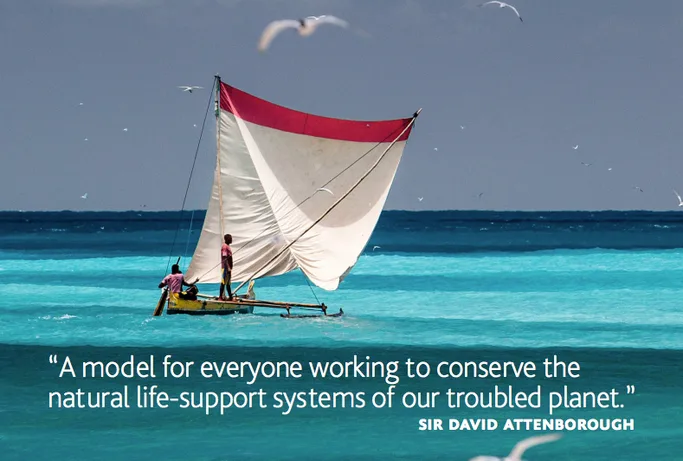
Check these out too!
Organisations that were also extremely popular in the search for Girls That Scuba’s favourite marine conservation projects were Coral Cay, Operation Wallacea and WSORC. So make sure you check out their websites for the projects they have to offer!
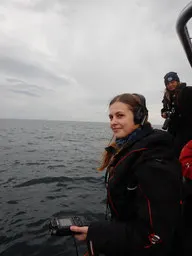
About the Author
Sian is a Dive Leader from Leeds and has just graduated with a Masters in Biodiversity in Conservation. Learning to dive intensified her passion to pursue a career in Marine conservation. The first time she saw a beautiful sea fan entangled in fishing line served as a stark reminder that our carelessness can have a significant impact on marine communities. She is a Campaign Coordinator for the volunteer campaign group Plastic-Free Me and has just started writing a blog about her journey into the field of conservation.

